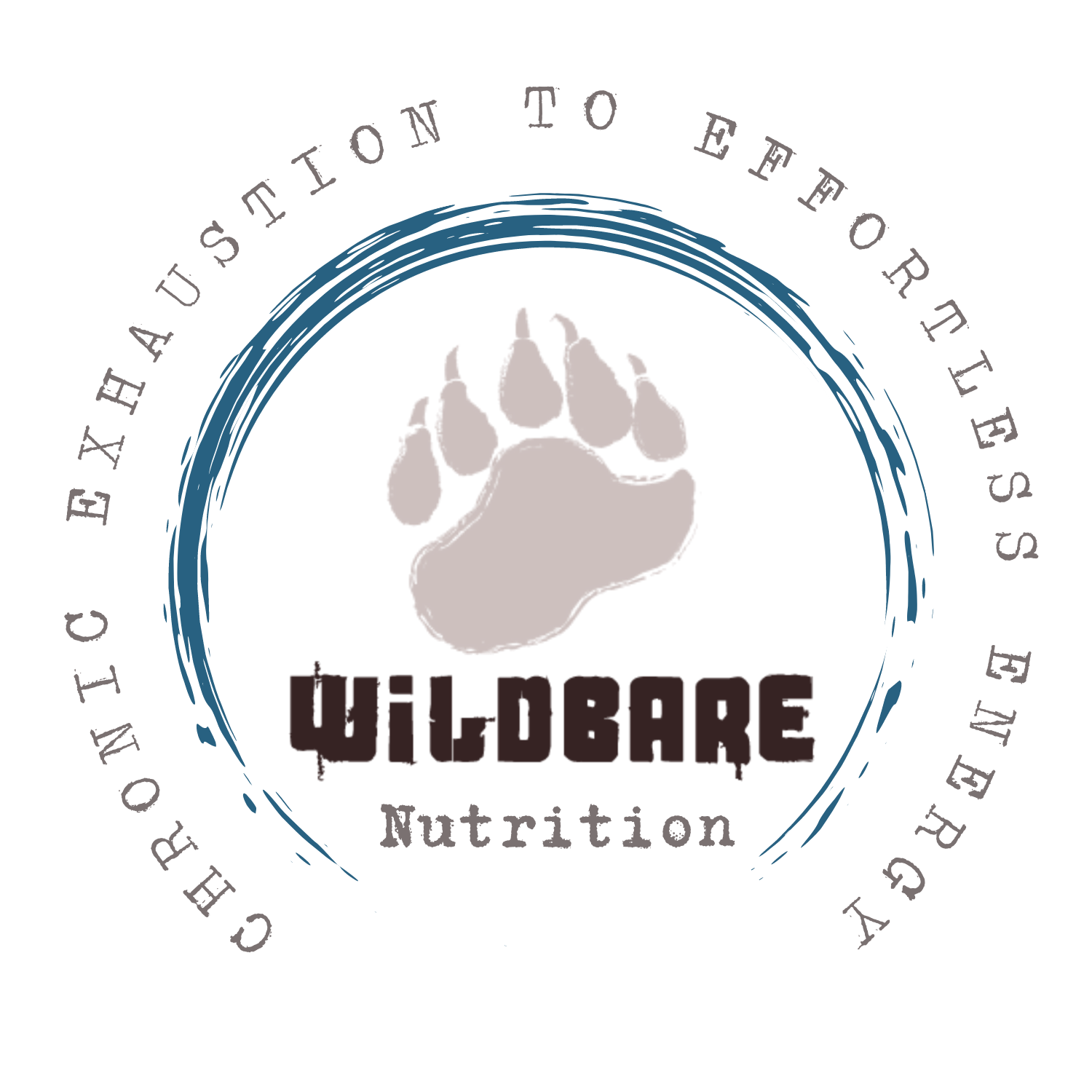Embracing the Outdoors: Nature's Prescription For Good Health
/Incorporating regular outdoor activities into your lifestyle is a powerful way to enhance your health, energy levels and well-being. From improving our gut health and balancing our nervous system to improving our sleep and immune function, nature offers a holistic prescription for better health. Here are my top expert nutritionist tips to ensure you get the health benefits of being more in tune with nature.
Gut Health: The Foundation of Wellbeing
The gut is often referred to as the "second brain" because it plays a crucial role in our overall health. Our gut is intrinsically linked to our nervous system, our immune system, and our hormonal system. A healthy gut can improve digestion, boost the immune system, and even enhance our mood.
Microbial Diversity: Exposure to diverse environments, including soil, plants, and natural water sources, introduces a variety of beneficial microbes to our system. These microbes enhance the diversity of our gut flora, which is essential for a robust immune response and optimal digestion.
Studies have shown that People who grow up on farms are generally less likely to develop asthma, allergies, or auto-immune disorders like Crohn's disease – thanks, apparently, to their childhood exposure to a more diverse range of organisms in the rural environment that had encouraged more effective regulation of the immune system.
Reduced Stress: Outdoor activities like hiking and gardening lower cortisol levels, a stress hormone that negatively impacts gut health and detrimentally affects gut flora. Lower stress levels promote a healthier gut-brain axis, reducing the risk of gastrointestinal disorders like IBS. In addition, the gut flora changes of being outside in nature stimulate more gut serotonin (the happy hormone) production beneficially influencing our mood.
Eating Seasonally: Eating seasonal produce has been found to simulate the natural rise and fall of our changing gut microbiome just as it would have done when we were hunter gatherers wholly immersed in nature and the changing seasons. There is more and more evidence that our gut microbiomes may have developed to change in response to temperature and seasonal fluctuations. Emerging research is indicating our bodies are meant to slow down and focus on fattening up in response to cold so that we can survive the winter. Exposure to cold can lead to shifts in your metabolism, your body tends to absorb calories faster, and your gut composition trends towards microbes that digest heavier, starchier foods better. Our gut flora changes with the seasons in line with our changing seasonal needs.
Most people realise that our ancestors were much more in-tune with the changes in nature throughout the year and understood that they structured their lives more in tune with the rhythm of the seasons. Solstices and festivals were used to mark certain times of the year and marked specific changes in the weather that dictated their planting and harvesting. Yet in the modern Western world, we are comparatively disconnected from much of the seasons, spending time in climate-controlled buildings, eating a standard diet year round and only experiencing the seasonal changes by looking out the window. All of these modern day influences confuses our bodies into thinking that the seasons aren't actually changing, which means that it doesn't transition completely into "spring mode." By eating seasonally we are ensuring that our produce has the naturally optimal levels of nutrients, less pesticides and herbicides are used as they will be growing when they designed to instead of breaking natural laws by growing them all year round. As our food will be ripening as nature intended chemicals are needed to artificially ripen as they are when growing out of season.
Nervous System: Calming the Mind and Body
The nervous system controls and coordinates all bodily functions. A balanced nervous system is essential for managing stress, anxiety, and overall mental health.
Chronic inflammation which underlies almost every chronic health condition (including depression) is the immune systems response to when we feel vulnerable and threatened. It is one of the first defences against infection, so the immune system prepares the body for any potential physical threat we may have been facing. That inflammatory preparation is really useful when we have to run away from a sabre-toothed tiger, but not so useful with the types of stress we experience today. Children who grew up in rural setting (regardless of their socio-economic status) have a lower inflammatory response to stressful events.
Natural Light Exposure: Sunlight stimulates the production of serotonin, a neurotransmitter that contributes to feelings of well-being and happiness. Increased serotonin levels can help alleviate symptoms of depression and anxiety.
Each and every cell in our body has clock genes, these are genes that dictate when those cells and organs the cells form part of become most active in the diurnal cycle (the movement of the planets which create our daytime and night time light exposure) Natural light exposure also helps entrain our circadian rhythms (the way our bodily systems respond to sunlight) which is so often completed knocked off course with exposure to artificial light. Getting daylight exposure before midday (even in winter) helps set every one of our bodily functions from our hormonal patterns, our digestive function, even our ability to manage our blood sugar! Being outside helps align our natural rhythms so our body is working optimally.
Grounding: Walking barefoot on natural surfaces like grass or sand, known as grounding, connects our body to the natural electric charge of the earth, transferring electrons into your body. This reconnection with the earth’s electrons balances the body’s electrical energy leading to a calmer, more centred nervous system. Some research shows that soaking up electrons can lower inflammation, lower blood pressure, heal wounds, ease stress, and improve sleep, helps regulate our circadian rhythm, to name a few. Studies have shown that grounding at night time actually restores our thyroid hormone production. These benefits start happening within a matter of minutes of being grounded to the earth.
Immune System: Enhancing Your Body’s Defence
A strong immune system is our best defence against illness. Nature exposure can significantly boost our immune function.
Forest Bathing: Forest bathing or 'shinrin-yoku' was first developed in Japan in the 1980s and involves spending at least two hours of mindful exploration in a forest. Forest bathing has been found to improve the immune system, reduce blood pressure, lower levels of the stress hormone cortisol and improves concentration and memory.
Trees and plants release phytoncides (wood essential oils), antimicrobial compounds that can enhance our immune response. Breathing in these compounds helps increase the number and activity of natural killer cells, which play a vital role in combating viruses and cancer cells. The best way to get those effects are from forest bathing and the effects last for a whopping 30 days after a forest bathing session!
Phytoncides from pine trees also improve our sleep quality particularly our deep sleep phases which are important for physical restoration and healing of the body. Effective levels of those phytoncides can be inhaled during a forest bathing session. So start scheduling in that evening woodland or forest walk.
Vitamin D: Sunlight exposure enables our bodies to produce vitamin D, which is crucial for immune function. Adequate vitamin D levels help in the prevention of autoimmune diseases and infections. Yes we can get vitamin D from supplements which is no different than the vitamin D our skin makes when exposed to sunlight, however, the source of vitamin D can affect how long the vitamin D stays active in our systems. Studies have shown that vitamin D derived from sun exposure causes a smaller spike in our vitamin D levels, but lasts longer in our systems than supplemental vitamin D does due to the differing transport systems for supplemental and sun synthesised vitamin D. Rather than spiking and falling after 24hrs like supplemental vitamin D, sunlight derived vitamin D stayed high for 7 days after exposure.
UVB radiation, essential for vitamin D production, is most intense between 10 a.m. and 2 p.m. This period is the optimal window for sun exposure, as UVB rays are at their peak, allowing for more efficient vitamin D synthesis. While sunscreens are promoted to protect from skin cancer the block those important UVB rays. So consider balancing skin protection and vitamin D synthesis through limited, unprotected sun exposure for a short duration before applying sunscreen, or use sunscreen with lower SPF for everyday use. Also if you have naturally darker skin you’ll need longer exposure times to make the same amount of vitamin D as those with lighter skin.
Mental Health: Nurturing the Mind
Spending time outdoors is one of the most effective ways to improve mental health. Nature provides a sense of peace and connection that is often missing in our fast-paced lives.
Mindfulness and Presence: Activities like hiking, bird watching, or simply sitting by a stream promote mindfulness, allowing us to be present in the moment. This mindfulness practice can reduce symptoms of anxiety and depression.
A 15 minute ‘Awe Walk’ a week has been found elevate mindfulness outdoors, improves mental well-being, creates more positive emotions whilst lowering negative emotions, calms your nervous system, reduces systemic inflammation, increases feelings of gratitude, promotes more altruistic behaviour and improves cognitive function.
Awe being described as: "a positive emotion elicited when in the presence of vast things not immediately understood.”
So leave the phone at home (or in the car) on your next walk in nature. Let your attention be open in exploration for what inspires awe and wonder. Shift your awareness on your walks so that you are open to what is around you, to things that are vast, unexpected, things that surprise, and delight. By proactively creating feelings of awe and the overwhelming sensation that we’re part of something grand and beautiful we create the right mindset to elevate our walks in nature from merely exercise to something life (and emotion) changing. Immediately take a selfie once you’re returned to your phone and watch you smile grow week after week of ‘awe’ walks.
I’m passionate about nature and the outdoors, over the years I have researched many of the different benefits that spending time in nature can have on our health and how to make it accessible for those with chronic fatigue issues. I’m a Functional Medicine Nutritionist and an expert in chronic fatigue issues. If you’d like to discover how I can help you, I offer a complimentary 30 min Health Transformation Strategy Call where we can discuss your needs and explore the best ways I can support you 1:1 on your recovery journey.
So, lace up those hiking boots, grab your gardening gloves, or simply take a moment to breathe in the fresh air. Your body and mind will thank you.



